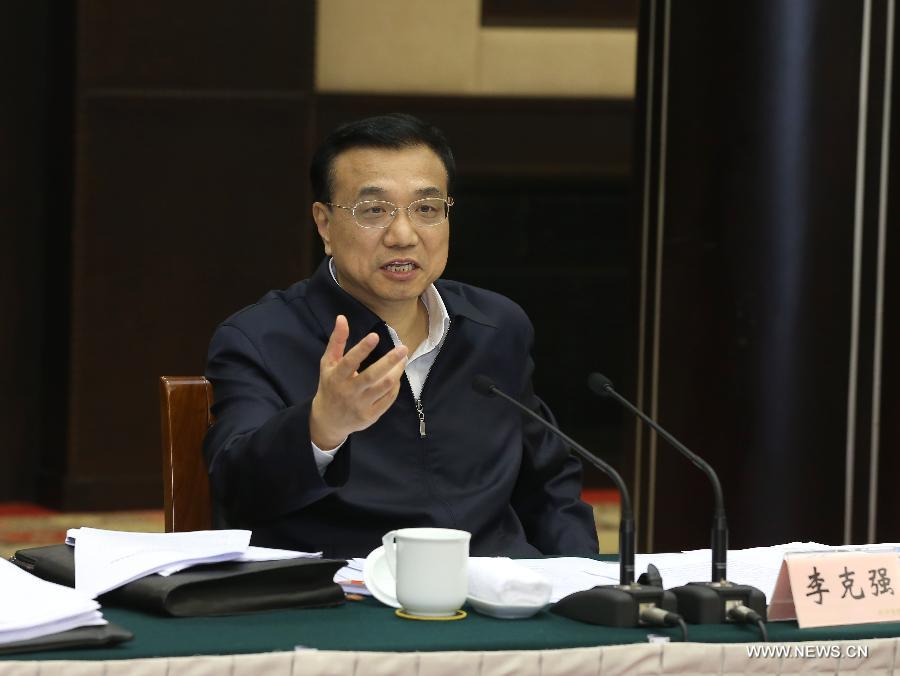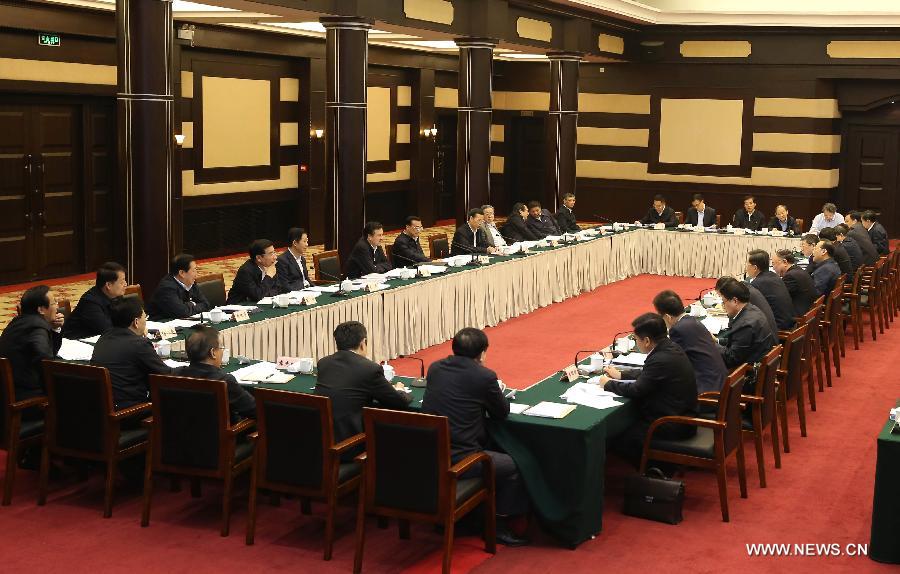李 克强呼吁建立长江经济带
重庆,4月28日(新华)——中国国务院总理李 克强讨论了建立长江经济带的问题。
CHONGQING, April 28 (Xinhua) -- Chinese Premier Li Keqiang on Monday discussed building an economic belt along the Yangtze River to underpin China's sustainable economic development.

Chinese Premier Li Keqiang presides over a meeting to discuss building an economic belt along the Yangtze River to underpin China's sustainable economic development, in southwest China's Chongqing Municipality, April 28, 2014. Chinese Vice Premier Zhang Gaoli also attended the meeting. (Xinhua/Pang Xinglei)
He made the remarks while chairing a meeting in Chongqing in southwest China. Vice Premier Zhang Gaoli also attended the meeting.
Officials from the National Development and Reform Commission, China's economic planner, reported on plans for the economic belt, which will involve eleven regions including Shanghai, Jiangsu, Zhejiang, Anhui, Jiangxi, Hubei, Hunan, Sichuan, Chongqing, Yunnan and Guizhou.
Li said that it has been a key pattern in the world's economic development to start in coastal areas and then move inland along rivers to the landlocked regions, and the common experience of many developed countries in their modernization.
The Yangtze River traverses eastern, central and western regions, joining the coast with the inland, and will have unique strengths and huge potential, Li said.
The Yangtze River Delta is a key pole in China's economic growth and the central and western regions boast the largest space for China's economic growth, according to Li.

Chinese Premier Li Keqiang presides over a meeting to discuss building an economic belt along the Yangtze River to underpin China's sustainable economic development, in southwest China's Chongqing Municipality, April 28, 2014. Chinese Vice Premier Zhang Gaoli also attended the meeting. (Xinhua/Pang Xinglei)
To build the Yangtze River economic belt is to set up a new chess game so that the coastal regions can support mutually and interact positively with the central and the western regions, he said.
Through reforms and opening-up, as well as some key projects, three "blocks" in the Yangtze River economic belt are expected to be invigorated, including the delta, city clusters along the central course and the Chengdu-Chongqing economic zone, according to Li. It can provide huge new development stimuli for more than a fifth of the country's land and about 600 million people
Though the Yangtze River's transport volume ranks the first among the global inland rivers, it still has remarkable potential, Li said, urging more efforts to improve the river's transport capacity.







